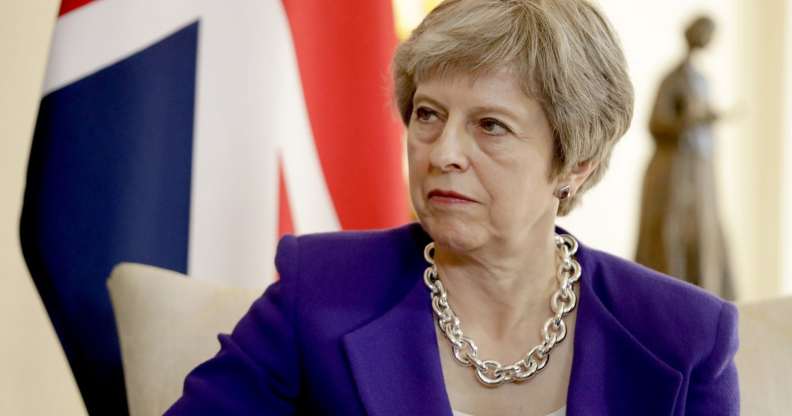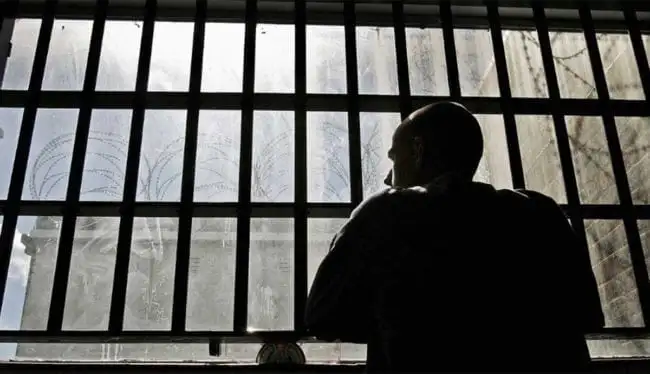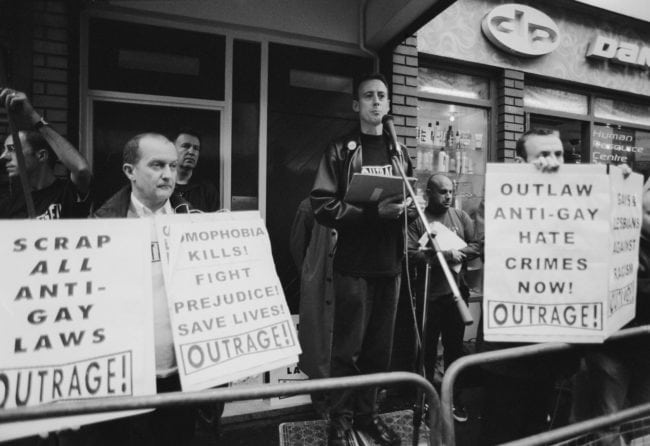Campaigners urge Theresa May to compensate pardoned gay men

British Prime Minister Theresa May (Matt Dunham – WPA Pool/Getty)
LGBT rights campaigners lead by Peter Tatchell have called on the government to compensate gay men who were convicted under historic anti-gay laws.
Tatchell, along with other campaigners including Lord Michael Cashman and the great niece of Alan Turing, issued a letter to Prime Minister Theresa May on Tuesday asking for financial compensation for the men who were prosecuted for being gay.
The veteran LGBT rights campaigner highlighted that of the 100,000 men convicted under the anti-gay laws prior to the partial decriminalisation of homosexuality in 1967, between 10,000 and 20,000 are still alive.

Many men were imprisoned for being gay (Creative Commons)
Tatchell told the BBC that being prosecuted for their sexuality “effectively destroyed their lives” and it was right to provide “some recompense in their autumn years.”
Homosexuality was partially decriminalised by a 1967 act that made homosexual acts that took place in private between two men over the age of 21 legal.
In 2017, the thousands of men who were convicted of historic gay sex offences were pardoned under Turing’s Law, which also enabled living gay men to apply through the Home Office’s disregard process to have their historic offences removed.
However, many believe that pardoning the men does not go far enough, with some calling for apologies and compensation from the government.
The request is in. Thousands of gay men have had and still have their lives wrecked by being arrested and often jailed for being gay. #timetocompensate Today we took our message to Number 10. pic.twitter.com/60lEmoT5jd
— Peter Tatchell Fdn (@PT_Foundation) 26 June 2018
In the letter delivered to the Prime Minister, Tatchell justified compensation for the living men by highlighting the tangible and financial consequences they faced for being prosecuted for their sexuality.
The letter stated: “These men deserve compensation for their painful, heart-breaking persecution. Many were jailed and nearly all endured devastating knock-on consequences.
“They often lost their jobs and became near unemployable and semi-destitute because of the stigma associated with having a conviction for a homosexual offence.
“Some experienced the break-up of their marriages and lost custody and access to their children. Families and friends disowned them and they were abused and sometimes assaulted in the street.
“Many descended into a downward spiral of depression, alcoholism, mental illness and suicide or attempted suicide. The psychological and emotional scars are devastating and long-lasting.
“That’s why they need and deserve state compensation.”

LGBT rights activist Peter Tatchell (centre) in 1999 (Steve Eason/Getty Images)
Computing hero World War II codebreaker Alan Turing, who was convicted of gross indecency in 1952, was previously granted a one-off posthumous royal pardon in 2013.
Rachel Barnes, the great niece of the Bletchley Park codebreaker said that Turing would want compensation for the men convicted under the same laws he was prosecuted under.

Alan Turing (Creative Commons)
Barnes said: “I am sure my great uncle would want gay men who suffered like he did to receive compensation. They deserve recompense for unjust imprisonment and fines, physical hardship, mental trauma and often impoverishment.
“No money can ever reverse lost and damaged lives but as a symbolic gesture compensation is important and the right thing to do.”

